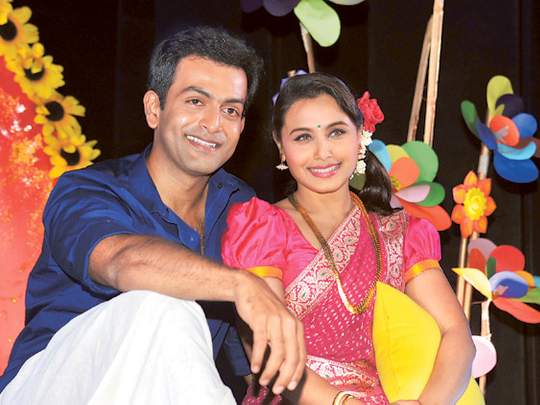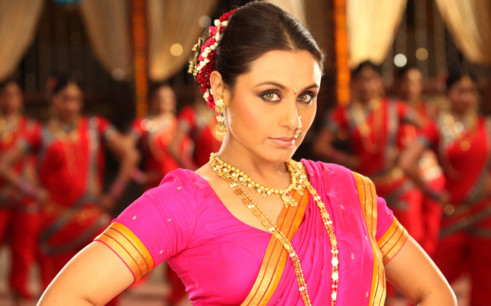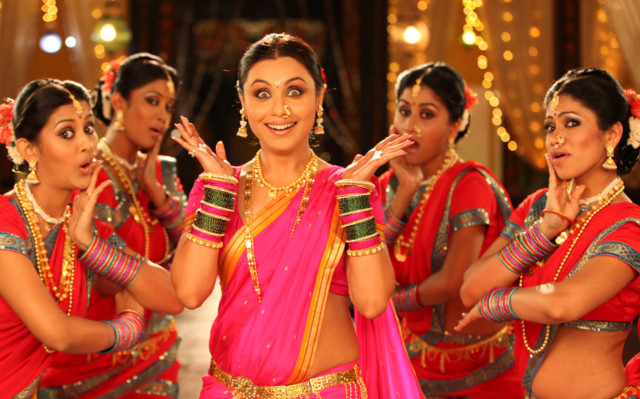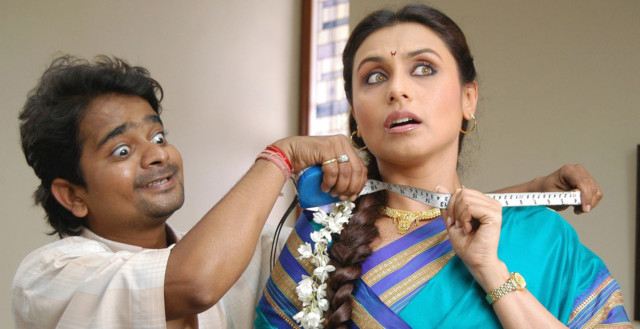
Bollywood actress Rani Mukherjee might give you a rap on your knuckles if you dare to ask her about the controversial script from her film Aiyyaa. In her cross-cultural romance, out this Thursday, her character, Meenakshi Despande, drops a seemingly offensive remark about preferring kaalu (dark-skinned) men to fair ones. But she claims it was an innocuous remark that’s been taken out of context.
“It’s wrong that people fail to understand the context. It’s that herd-like mentality … if one person says something stupid than others just follow,” said Mukherjee in exasperated tones.
The trailers show a young Maharashtrian woman being subject to the rigours of an Indian arranged marriage. Her voice — about dark men being her idea of Mr Right — is almost lost in the chaos that erupts when her matchmaking parents line-up a string of potential grooms for her to choose from.
“In this film, we have gone against the stereotypes attached to South Indians. In a Hindi film, you don’t see a South Indian as the hero of the film … I don’t think we have ever shown a Tamilian being looked upon as an object of desire either.”
It’s not a tall claim. In the past, South Indian characters in Bollywood features have been employed as comic sidekicks. Their distinct Hindi accents with “aiyoo” at the end of words and their sambar-guzzling habits have been derided for many years.
Mukherjee claims that her North-South love story is going to change the way South Indians are perceived.
“In this wacky film, Surya is that quintessential tall, dark and handsome guy, which novelists and storytellers talk up in their romances. I hope sensible people start putting this word out there,” she said.
Though we are tempted to buy into her belief, the evidence against her is mounting.
In the song Dreamum Wakeupum in Aiyyaa, she’s seen cavorting in South Indian Silk Smitha-style with a shirtless Prithviraj. Some very gaudy costumes, violent hip thrusts and loud chorus dancers, the oft-used crutches to snub South Indians, have been duly inserted.
“What you see there is her dream. Meenakshi Deshpande’s character is that of a simple girl. It’s only when she enters her dream that she does things that she would never do in real life. In reality, she’s soft and sweet-spoken. But while dreaming she’s like Alice in Wonderland.”
Actor Prithviraj, who makes his Bollywood debut with Aiyya, supports her wholeheartedly.
“In this film, everything about a South Indian — their culture, their skin colour and their lifestyle is presented as good and sexy,” said Prithviraj. The pair say the joke is not on South Indians but on the system of arranged marriages in India. Essentially, parents choose their children’s life partner by orchestrating meetings between two potential parties.
“Meenakshi lives in a society where arranged marriages are the norm. She naturally rebels against it. She’s fed up of being displayed as an object every evening by her parents … but we do all of it with a funny twist,” said Mukherjee.
Billing it as a wholesome entertainer, Mukherjee -- who’s at the forefront of Aiyyaa promotions -- says her is film gender-proof.
“I won’t term Aiyyaa as a woman-oriented film … I don’t understand why any film should be gender focused. Why should it be hero or heroine oriented? At the end of the day, either you like a film or you don’t like it. I have still not figured what viewers like and they don’t.”
The 34-year-old made her debut with Raja Ki Ayegi Baraat in 1997 and has churned out several blockbusters including Kuch Kuch Hota Hai, Chalte Chalte and Bunty Aur Babli in her decade-plus reign. In 2011, she returned to the big screen with the gritty true-life thriller No One Killed Jessica. She played a potty-mouthed journalist who takes up the cause of a barmaid who was shot dead in public by rich brats in Delhi.
“Nowadays, producers are willing take risks. All I know is that Aiyyaa’s story excited me … In today’s times, you really know don’t which film will be liked or disliked. The only thing an actor can hope for is the belief that if I am liking a film so much, perhaps even my viewers will like it as much.”














